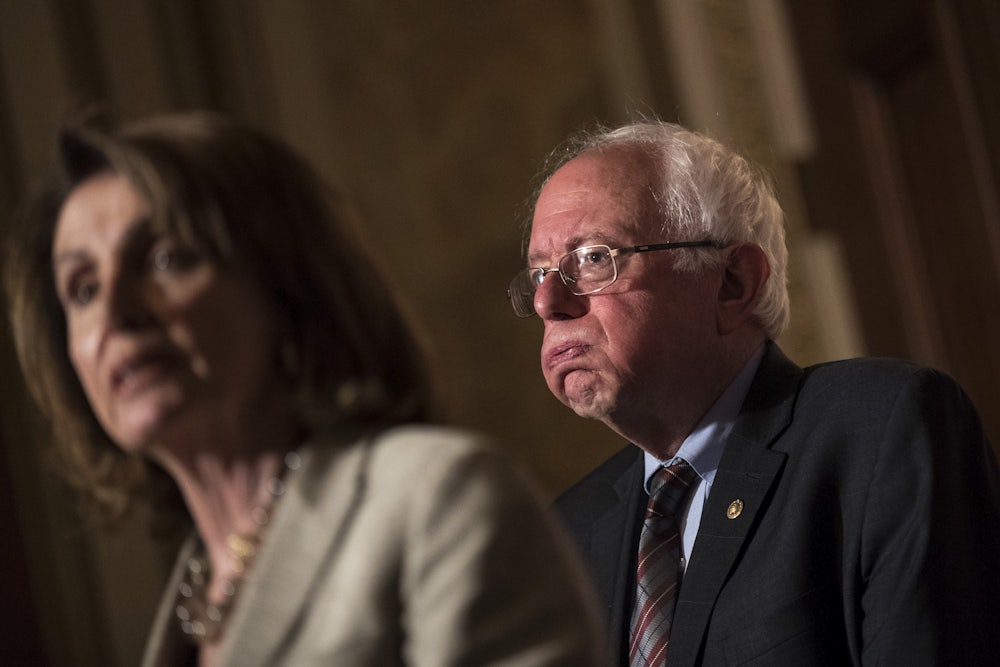Progressives have fallen into a familiar pattern early in Donald Trump’s presidency: wait for him to screw up, and then, depending on the severity of the offense, react with mockery or outrage. This applies to the trivial, as when Trump tweeted “Despite the negative press covfefe,” and to the consequential, as when he withdrew the United States last week from the Paris climate agreement.
In the latter instance, the outrage has spurred action: The same day as Trump’s announcement, a coalition of governors, mayors, university deans, and CEOs, led by Michael Bloomberg, pledged to keep America’s Paris commitments. “While the executive branch of the U.S. government speaks on behalf of our nation in matters of foreign affairs,” Bloomberg wrote in a letter to the United Nations secretary-general, “it does not determine many aspects of whether and how the United States takes action on climate change.” A separate group, of Democratic governors, has formed a similar alliance. “California will resist this misguided and insane course of action,” California Governor Jerry Brown said. “Trump is AWOL but California is on the field, ready for battle.”
Democrats have seized on Trump’s massive unpopularity to sell a powerful message not only against his disastrous presidency, but against a Republican Party that appears incapable of running the country. That a party entirely out of power in Washington would define itself in opposition to the majority is not surprising. Without the power to pass legislation, what more can Democrats do but rail against Trump and fight his efforts to undo President Barack Obama’s legacy? The answer: Democrats can push even more progressive policies than the ones they’re trying to save.
The downside of Obama’s success was that it made the left overconfident about the political future of the country: Progressivism’s ascent was unstoppable, it seemed, and the Democratic Party had a lock on the White House. That overconfidence bred complacency, at least among the party establishment and its base. Bernie Sanders and his supporters, meanwhile, argued that all was not well—and they were proven right when Hillary Clinton lost.
Trump is already one of the greatest unifiers of the American left in history. The clear and present danger of his presidency—his almost comically villainous cabinet, draconian budget, racist Muslim ban, egregious ethics violations and deepening Russia scandal—has led Democrats, whose intraparty squabbling dominated last year’s primaries, to form a united opposition both in Congress and on the streets. There have been mass marches for women, science, the environment, truth, and immigrants. The Republican attempt to repeal Obamacare, in particular, has ignited widespread progressive activism in the form of street protests, raucous town hall meetings, and overwhelmed congressional offices.
The Democratic base demands full-throated opposition to Trump, and it’s proven lucrative: Fundraising is through the roof. And the left is certainly energized in a way it never would have been under Clinton. Still, one has to wonder if this is the best way for the party to define itself. Opposition might be an easy sell and raise lots of money, but Democrats are missing an important opportunity to provide the country with an overarching policy vision for the future.
On climate change, for instance, Democrats shouldn’t settle on defending the Paris agreement, when the widespread consensus among climate scientists is that even Obama’s policies weren’t nearly enough for America to meet its commitments. Renewable energy is the only solution for the future, not just for saving the environment but also for job growth, and the United States is about to lose its mantle of leadership to China, so Democrats should propose even more aggressive policies to address these threats and spur economic growth.
The same goes with health care. As Republicans in Congress fight over the American Health Care Act, too many Democrats are still talking about saving Obamacare, when in fact this may be precisely the moment for them to be arguing for single payer. Even the CEO of one the largest health insurance companies in the country has said he’s open “to have that debate.” With so much attention being focused on the people who will lose coverage or see their premiums skyrocket under the AHCA, now is the time to make a bolder case for the kind of healthcare policy that would certainly address both of those issues convincingly.
Indeed, some on the left are doing just that. “[C]ast out of power in Washington and most state capitals, Democrats and activist leaders seeking political redemption have embraced an unlikely-seeming cause: an actual government takeover of health care,” The New York Times reported on Saturday. “At rallies and in town hall meetings, and in a collection of blue-state legislatures, liberal Democrats have pressed lawmakers, with growing impatience, to support the creation of a single-payer system.” While most House Democrats back a single-payer, Medicare-for-all bill, party leadership has balked at the idea. ““The comfort level with the broader base of the American people is not there yet,” House Minority Leader Nancy Pelosi said recently.
Republicans have long been experts on framing issues on their turf, moving the center of American politics rightward for several decades now. Democrats must take advantage of today’s Trumpian chaos to regain that ground with the kind of bold policy proposals that will not simply save Obama’s legacy, but build upon it. Just as Democrats assumed they could coast to victory with Clinton last year, the party complacently awaits Trump’s self-destruction. But that will not be enough to return to power in 2018 or 2020. Democrats need to convince voters that they will do more than just stop Trump—that they will govern responsibly and progressively. They need look no further than the current Republican Congress for proof that a party without a vision is not destined to succeed.
